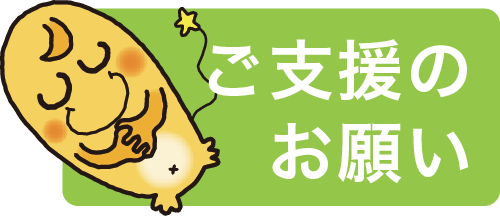[include-page id=”27802″]
Profile
|
【Conference Advisors】 |
|
|
Tsutomu TAKEUCHI (Professor emeritus of Keio University/Keio University Global Security Research Institute Keio G-SEC Senior Visiting Research Fellow) Tropical medicine, Parasitology Through the experiences of the National Institute of Health, Dean of Institute of Tropical Medicine NAGASAKI University (NEKKEN) I tackle the global problems of infection disease. Cause of Social, Political, Economic rapid changes coming from the globalizations, we need to face the problems of infection disease and related health matter, and Risk Management Problem of this area, also are required the developments of human resources immediately. Now I officiate Chairperson of Foundation for Promotion of Medical Training, The Preparatory Committee of School of Public Health St. Luka’s International University Specially-appointed professor, the member of Expert Advisory Panel, WHO、Framework Initiative for Safe and Secure Society, Government of US/Japan, am trying various approach. |
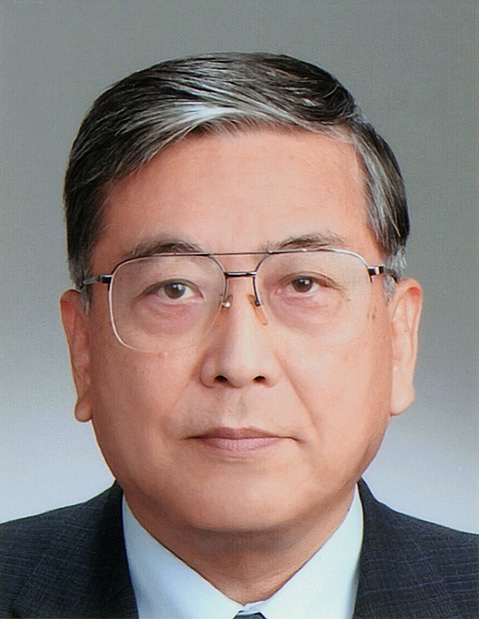 |
|
|
|
|
Tetsuro MATSUZAWA (Professor of Primate Research Institute of Kyoto University/General Director of Japan Monkey Centre) Tetsuro Matsuzawa is Professor of Primate Research Institute of Kyoto University. Program coordinator of the Kyoto University Graduate Program of “Primatology and Wildlife Science”, General director of Japan Monkey Centre, and the President of International Primaotological Society. It is now probably high time to say goodbye to the supposed absolute dichotomy between humans and animals. As humans, we are ourselves members of the animal kingdom. Therefore, that humans remain pitted against nature makes no sense. Human must be part of Nature. Buddhism is the cultural background to the Japanese way of thinking. In Buddhist tradition, all living creatures are interconnected and, in reincarnation, interchangeable. A human can be born into the next life as an insect, or a bird; then in the next again life, once more as a human. The word ‘Wildlife’ in this sense does not refer to wild animals as separate to humans, as in the Western tradition, but instead means the web of living organisms, including humans, who have shared and will continue to share planet Earth. My colleagues and I have made an effort to create a new integrated discipline of ‘Wildlife Science’ based on fieldwork to further our understanding of human nature, as well as that of wild animals. |
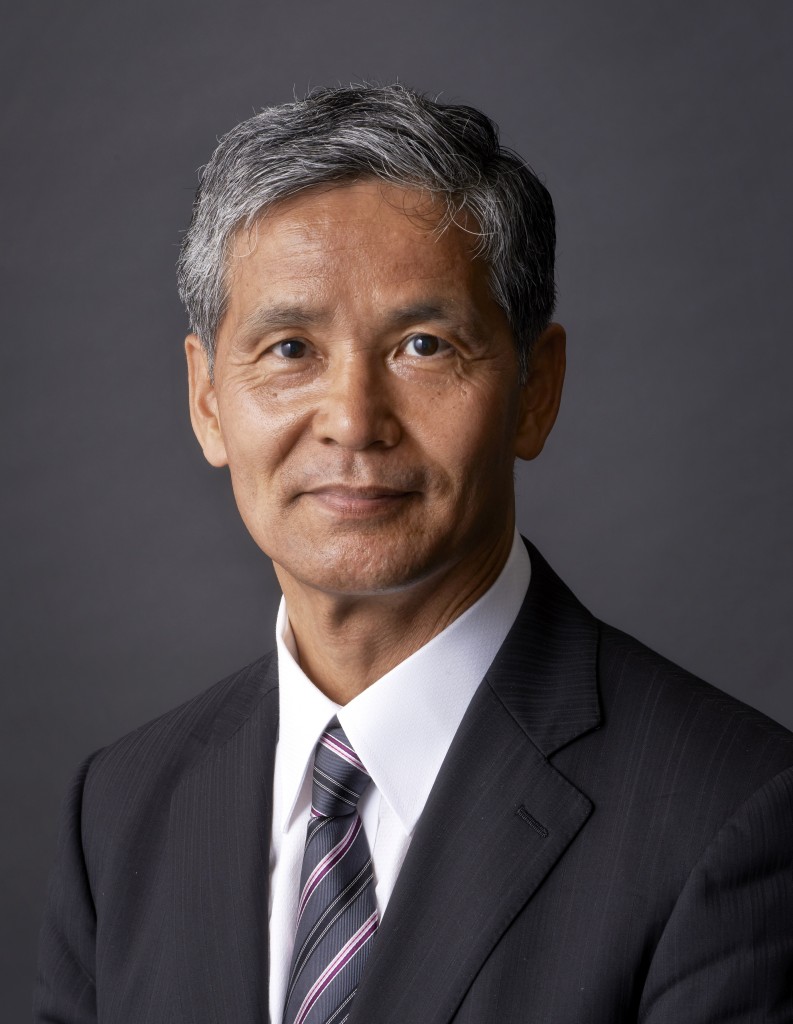 |
|
|
|
|
Takuji OKUNO (Dean of the University Library & Professor at School of Sociology, Kwansei Gakuin University/Affiliate Professor at Graduate School of the Open University of Japan/Special Research Fellow at Yamashita Institute for Ornithology) Dr. Okuno experienced Great Hanshin-Awaji Earthquake in 1995 when he was a professor at Konan University. After engaging in the post-earthquake reconstruction project for two years, he has become a professor of Kwansei Gakuin University. It is because he had an experience translating “Understanding Your Dog” written by an ethologist, M.W. Fox, he founded Society for the Study of Human Animal Relations (HARs) with Professor Yoshihiro Hayashi at University of Tokyo (at that time). As a vice-president of HARs, a cultural anthropologist, and a sociologist, he discussed the relationship between companion animals and owners. Also, he participated animal rights act. Dr. Okuno‘s research is focused on Japanese popular culture, Manga, comics, Anime, animations, J-pop music, Figurines, and games. These phenomena are called “Japan Cool” or “Cool Japan”. They have gained popularity around the world. Their particular popularity was spread to other Asian countries and the USA by the internet and digital media. Dr. Okuno notes that the roots of “Japan Cool” lie in Japanese Edo culture, just as the roots of Anime lie in Kabuki and the roots of Manga in yellow covers lie in the Edo period. |
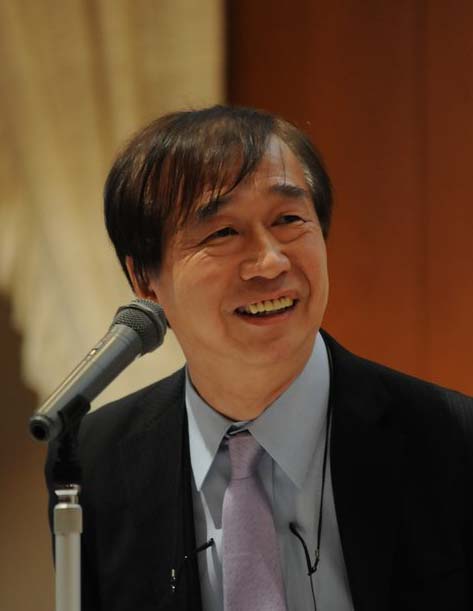 |
|
【Steering Committee】 |
|
| Hiroaki KONO (Director of Hyogo Prefecture Animal Well-being Center)
Employed by a government office in Hyogo Prefecture in 1986. Presently working at Hyogo Prefecture Animal Well-being Center. I feel detachment between a general statement and a particular statement, and also between a public statement and a job site among human animal interaction. “Being ever thankful for each other’s existence and living happily for Through the international conference since 2009, I hope the introductory slogan might be passed to more people. |
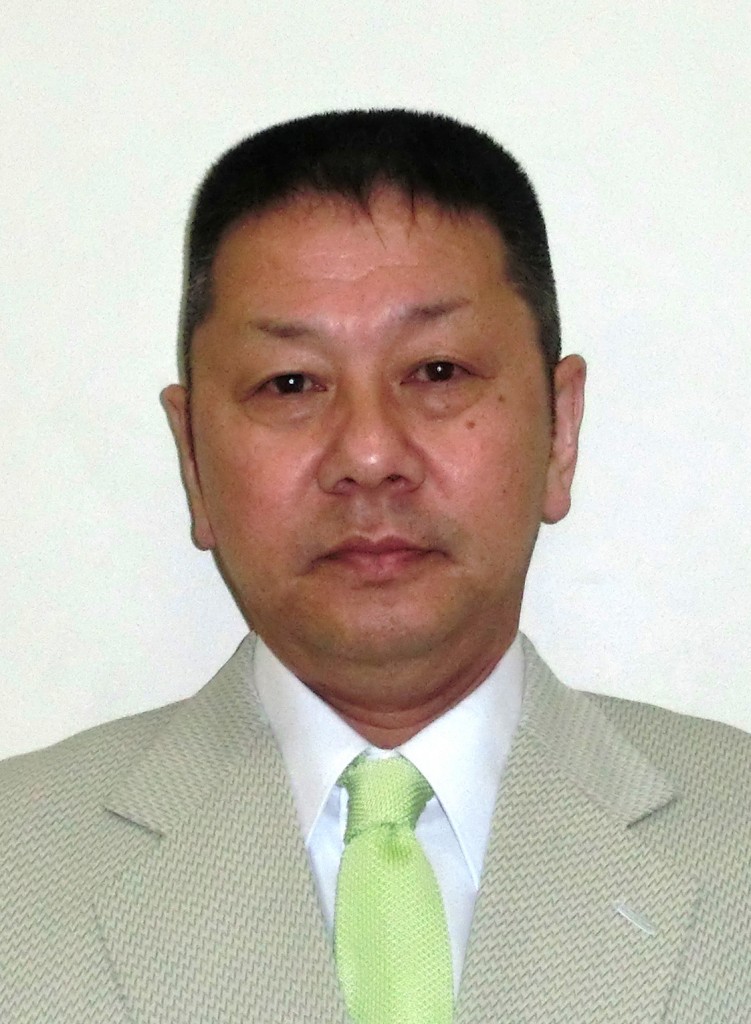 |
|
|
|
|
Kazumi SASAI, D.V.M., Ph.D. (Osaka Prefecture University, School of Veterinary Science, Director for Academic Affairs, Professor/Osaka University, Graduate school of Engineering Invited Professor/Auditor secretary, Osaka Veterinary Medical Association) He graduated from Osaka Prefecture University in 1983. He was involved as a candidate in the Research Fellowship for Young Scientists of Japan Society for Promotion of Science and as a visiting scientist in Purdue University and the Malaysian Agricultural Research and Development Institute. He utilized his career’s experience and engaged in the study and education for Veterinary Internal Medicine and Zoonosis in Osaka Prefecture University. However, he realized that it was very difficult to establish mutually beneficial and dynamic relationships between people and animals. He would like to deal with such problematic matters to the best of his ability. |
 |
|
|
|
|
Taisei HOSOIDO, D.V.M. (President, Japanese Animal Hospital Association)
Born 1955, Osaka, graduated Yamaguchi University Has been involved in developing local veterinary care system (night-time emergency veterinary medical services, referral systems) and raising public awareness concerning appropriate pet ownership and animal assisted activities. Present interest is the creation of life purpose measures for the elderly. |
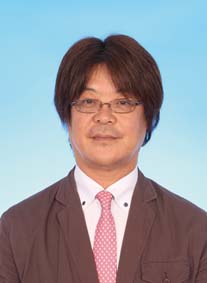 |
|
|
|
|
Shinichiro YAMASHITA (Chairperson, Japan Animal Welfare Society) Mr. Shinichiro Yamashita joined Yamashita Ship, Ltd, in 1959, Apr. and worked for its NY office for 3 years from 1970. June 198, he was promoted to a director of then NavixLine, Ltd. and 1997 June, he was promoted to a vice president. June 2001, he resigned from the vice president of, then, Mitsui O.S.K Lines, Ltd. August 2001, he established Yamashita Office, Ltd. and took office as the president. He also has a great energy for volunteer activities and has been the chairman of Youth Welfare (since Nov. 2002) and Japan Animal Welfare (since June 2005), and the vice chairman of TokyoClub (since May 2014). |
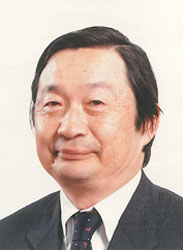 |
|
|
|
|
Yoshitake YOKOKURA (President, Japan Medical Association)
Dr. Yokokura graduated the Kurume University School of Medicine in 1969 and served the second surgery department of the university as an assistant. After that he worked for the surgery department of the Detmold Hospital in the University of Munster Educational Hospital in Germany. In 1997, he became a director and president of the Yokokura Hospital. He served as a member of the Central Social Insurance Medical Council from 1999 to 2002 and a member of the Medical Department of Social Security Council from 2010 to 2012. Since 1990, he had taken office as board member, executive board member, vice-President and President of the Fukuoka Medical Association. He became Vice-President of the Japan Medical Association (JMA) in 2010. He has been serving as the 19th President of the JMA since 2012. |
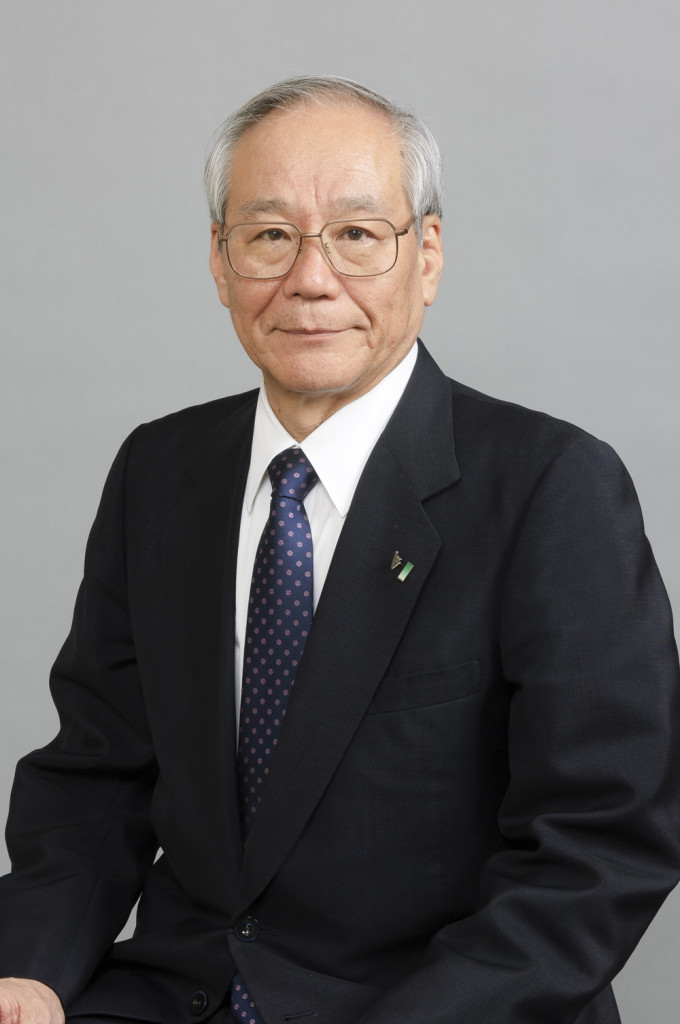 |
|
|
|
|
Jun SAEKI (President, Osaka Prefecture Veterinary Medical Association/Vice President, Japan Small Animal Veterinary Association/Chief Board of Directors , All Japan Veterinary Co-operative/Secretary, Japanese Association of Veterinary Disaster Medicine/Direct Dr. Saeki graduated Nippon Veterinary and Zootechnical College (now Nippon Veterinary and Life Science University) and obtained veterinarian qualification. Through the researcher of pharmaceutical company and duty veterinarian, Dr.Saeki established animal hospital in izumi city, Osaka. Dr. Saeki assumed President of Osaka Prefecture Veterinary Medical Association. Dr. Saeki also assumed Vice President of Japan Small Animal Veterinary Association and act as a chairperson of disaster countermeasures committee and zoonosis committee. Dr. Saeki serve as the Boad Directer of All Japan Veterinary Co-operative and concerns veterinary nurse education and establishment of qualification system. Dr. Saeki belong to Department of Veterinary Internal Medicine, School of Veterinary Science, Osaka Prefecture University and engaged in a study of zoonosis. |
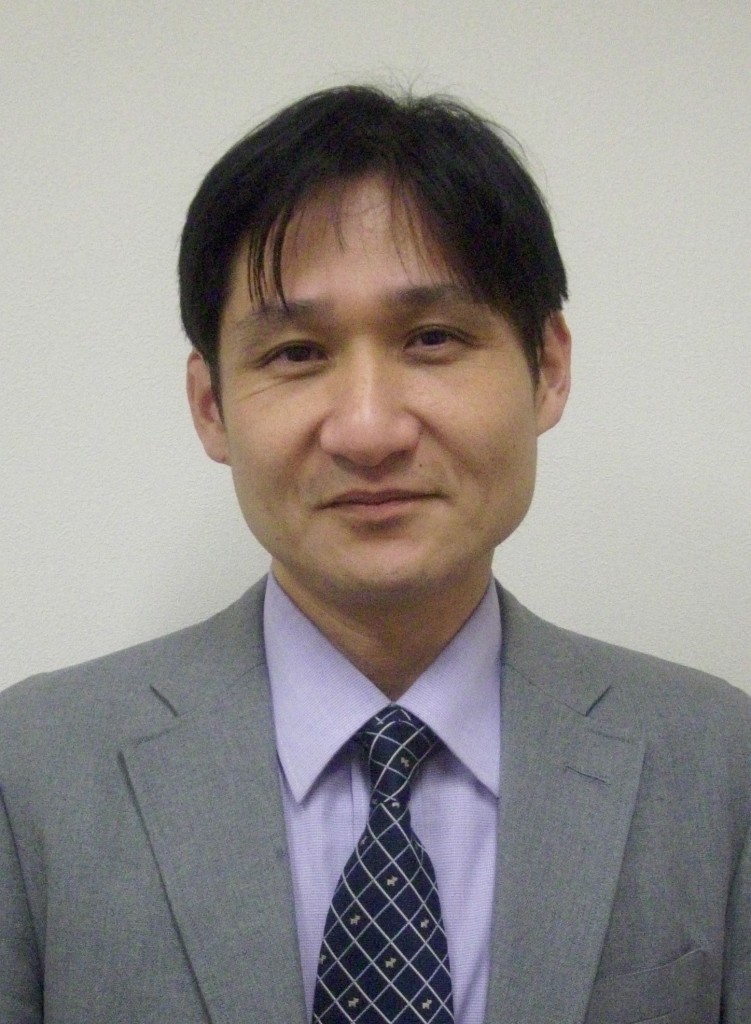 |
|
|
|
|
Hiroyuki NAKAYAMA, DVM, PhD (Chairperson, Japan Veterinary Medical Association / Professor, Department of Veterinary Pathology, Graduate School of Agricultural and Life Sciences, The University of Tokyo)
He had graduated from the University of Tokyo and obtained Doctor of Veterinary Medicine (DVM) in 1980. He worked for the University as an assistant professor and an associate professor, and became a professor in 2006. During the period, between 1986 and 1988, he studied at the National Institutes of Health in USA as a visiting fellow. He has been the president of the Japanese Society of Veterinary Sciences since 2012. His major field of researches was veterinary pathology, especially comparative brain pathology. “Evolutional pathology” or “Evolution of diseases” is a key word in talking about his researches. |
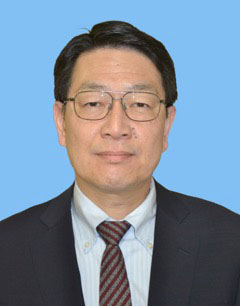 |
|
|
|
|
Kayoko TOMINAGA (Board Chairperson, Public Interest Incorporated Association Knots) Graduated from Nagasaki University, Faculty of Economics Board member of ‘ Keirin-kai’ (University Faculty Alumni) Founded NPO Knots in 2000. Knots was recognized as a Public Interest Association by the Japanese government in 2010. For the sake of turning the Hanshin – Awaji Earthquake experience into a happy future for the people and animals, Knots works at tying together (hence the name “Knots”) people involved with various projects. Worked for the Committees of Wildlife Management in Hyogo Prefecture. Now works as a Committee Member of the Veterinary Affairs Council at the Ministry of Agriculture, Forestry and Fisheries of Japan; Councilor of the Japanese Society of Veterinary History; Vice Chair of the Conference for the Study of “Inochi” Education at the Uda Animal Park in Nara Prefecture; Part-time Lecturer at Mukogawa Women’s University; Nagasaki City Tourism Ambassador |
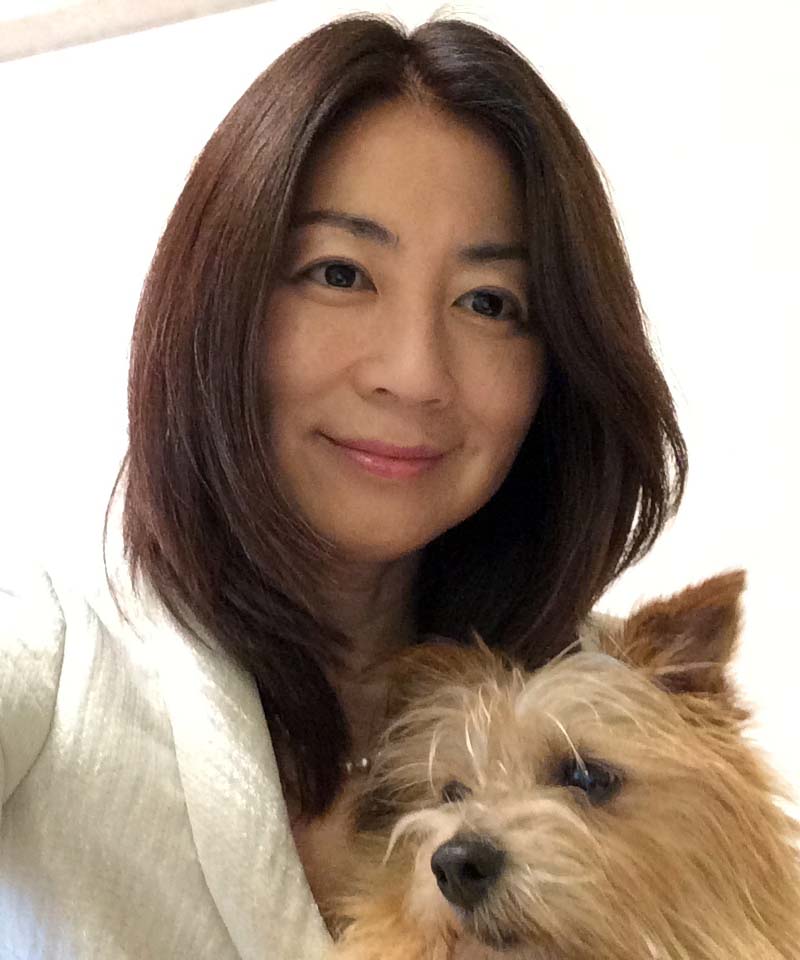 |
|
【Secretariat Advisors】 |
|
|
Takashi UEMURA (Professor, Shijonawate Gakuen University, Veterinarian, Doctor of Agriculture)
Takashi UEMURA graduated from the Department of Veterinary Science, School of Agriculture, Osaka Prefecture University in 1963. He then continued to graduate school (bacterial toxin). After working at Osaka Prefecture University as a professor in a Veterinary Public Health Laboratory, he retired in 2004 and became a professor emeritus. |
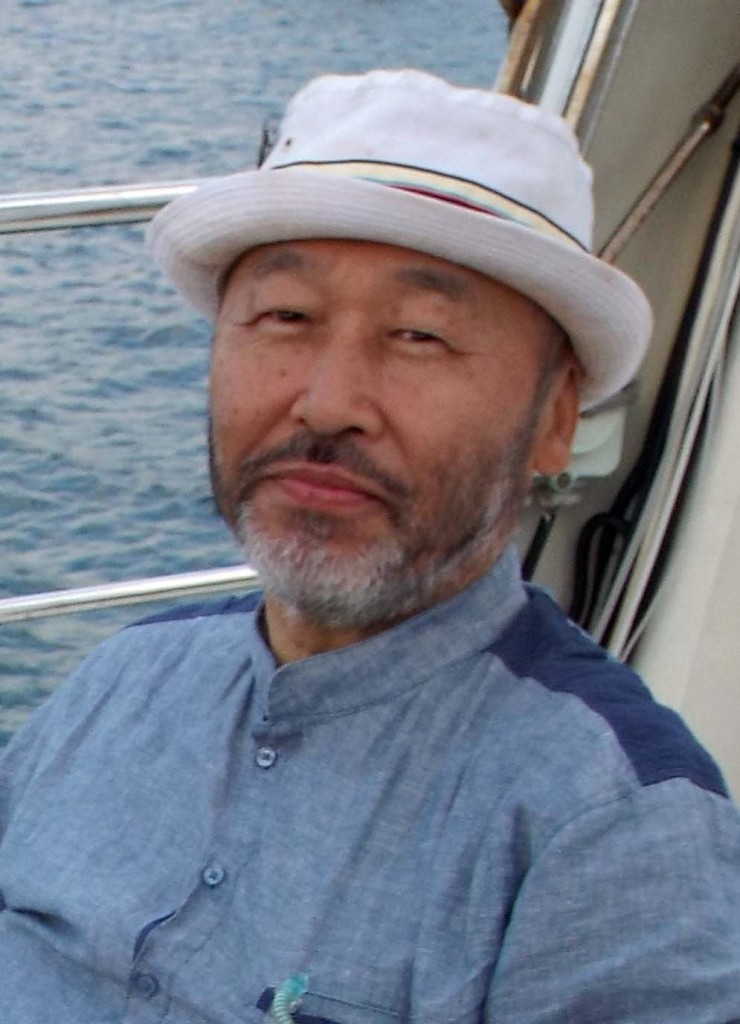 |
|
|
|
|
Hiroko SHIBANAI (Advisor, Japanese Animal Hospital Association) Dr. Shibanai founded Akasaka Veterinary Clinic (Akasaka Animal Hospital) in 1963. As a fourth JAHA President, she started up the ‘Companion Animal Partnership Program’ (CAPP), which clarifies the basic philosophy of Human Animal Bond (HAB) and contributes to society through veterinary medicine. She promoted Animal Assisted Activity / Therapy / Education all over the country. Since the days Japan Hearing Dogs for Deaf People was founded, she supported the health control of hearing dogs as a supervisor. She has become a member of Sendai City Animal Convention (Association) since 2002 and a member of Animal Welfare and Proper Management Committee, Animal Welfare / Protection in Japan Veterinary Medical Association since 2013, Today, ICAC is composed of eagerness of Ms. Tominaga, administration officers, and staff, who wish to have the field to care all creatures. |
 |
|
|
|
|
Kimihiro TAMAI (Chairperson, Wakayama Veterinary Medical Association) He aimed to be a veterinarian during puberty and learned at Osaka Prefecture University. After worked under the Director, Dr. Tetsuyo Koreeda, at Fujiidera Animal Hospital, he founded Kinokawa Animal Hospital. While facing innocent lives and struggling between ideal and reality, he always discussed with various people as a clinical veterinarian. As an active veterinarian since 1999 and a member of Japan Veterinary Medical Association since 2001, he has expanded discussions and activities about animal well-being and human responsibilities, and then he realized a synergy and comfort of cooperation with people in other field. On the edge of the 60th birthday and at his second puberty, he looks forward to finding new aim and meeting people at ICAC KOBE 2015. |
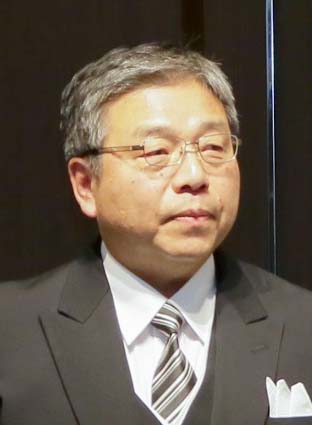 |
|
|
|
|
Chizuko YAMAGUCHI (Japan Animal Welfare Society, Special Adviser) Graduated from Osaka Prefectural University and qualified as veterinarian in 1975. After having animal inspector training course at the RSPCA and qualified as an inspector in England and studying about animal welfare in USA and Canada, she joined Japan Animal Welfare Society as a Veterinary Inspector in 1981. Now she is helping the society as a Special Advisor. |
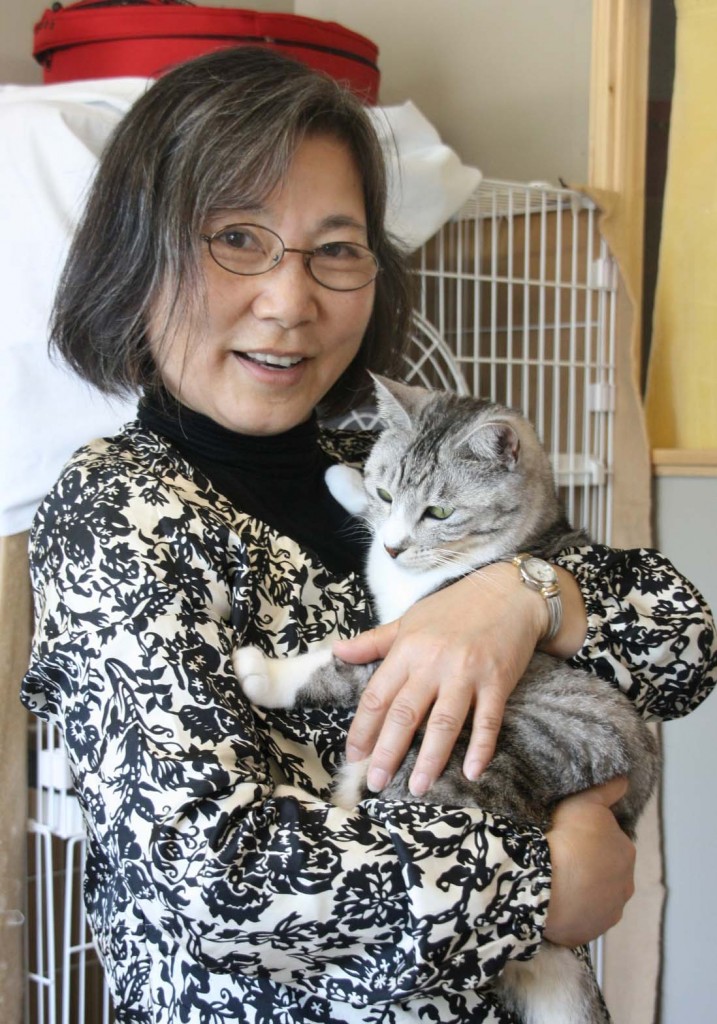 |
|
|
|
|
Keiko YAMAZAKI (Founder,Companion Animal Study Group ‘Go’) Keiko Yamazaki is the founder of the Companion Animal Study Group Go which aims to disseminate information pertaining to human animal relations. She is currently serving as a board member for the Japanese Service Dog Information Center and the Japanese Association for the Promotion of Canine Good Citizens. She is also the vice-chairman of the Japanese Association for the Promotion of Hearing Dogs. Her foreign affiliations include board member of IAHAIO and instructor for Pet Partners. She is currently teaching human animal interactions in several colleges. |
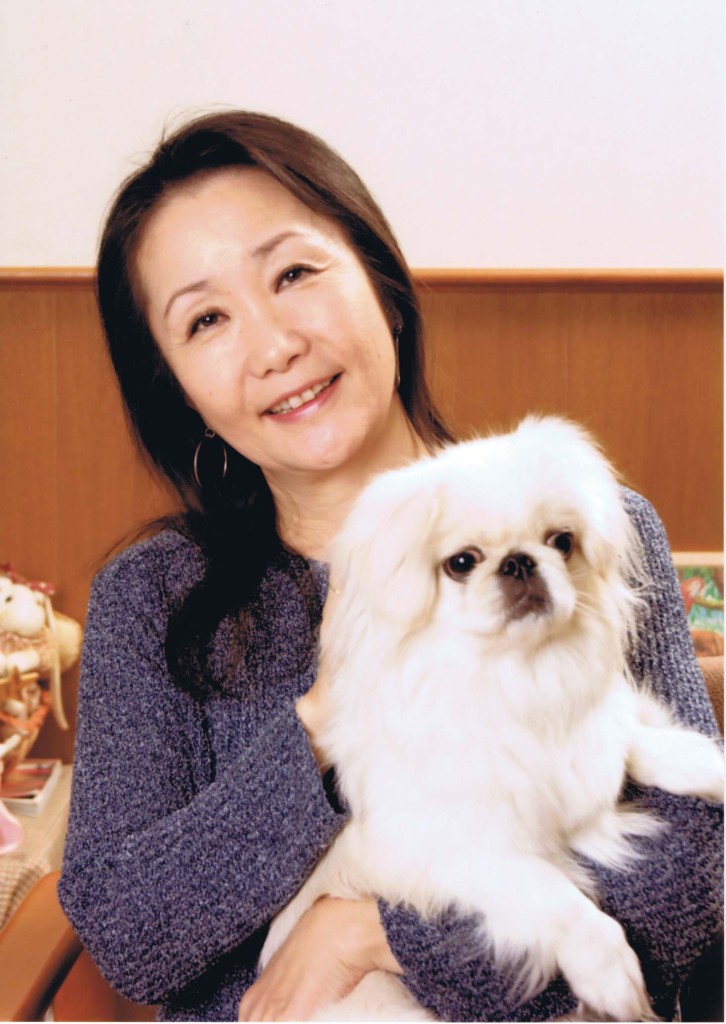 |
|
【Keynote Symposium】 |
|
|
Ryuichi IDA (Professor emeritous, Kyoto University/Distiguished Visiting Professor, Graduate School of Global Studies, Doshisha University/Director, Research Centre for Bioethics Governance, Doshisha University/Vice Director, International Institute for Advanced Studies (public corp.)) Distinguished Visiting Professor, Doshisha University; Professor emeritus, Kyoto University; Expert of International Bioethics Law Graduated from Faculty of Law, Kyoto University; Professor at Kyoto University until 2012, then moved to Doshisha University; Enjoyed a life in Granma-in-law’s house in Nishinomiya for two and half years since 1998 before moving to Kyoto. Frequent shuttle trips between Kyoto an Has actively participated to international as well as internal discussions, norm-makings and review activities on various bioethical issues, thanks to the experience of Chairpersonship of UNESCO International Bioethics Committee. Actually serves as ethical expert on Ebola virus disease in WHO. |
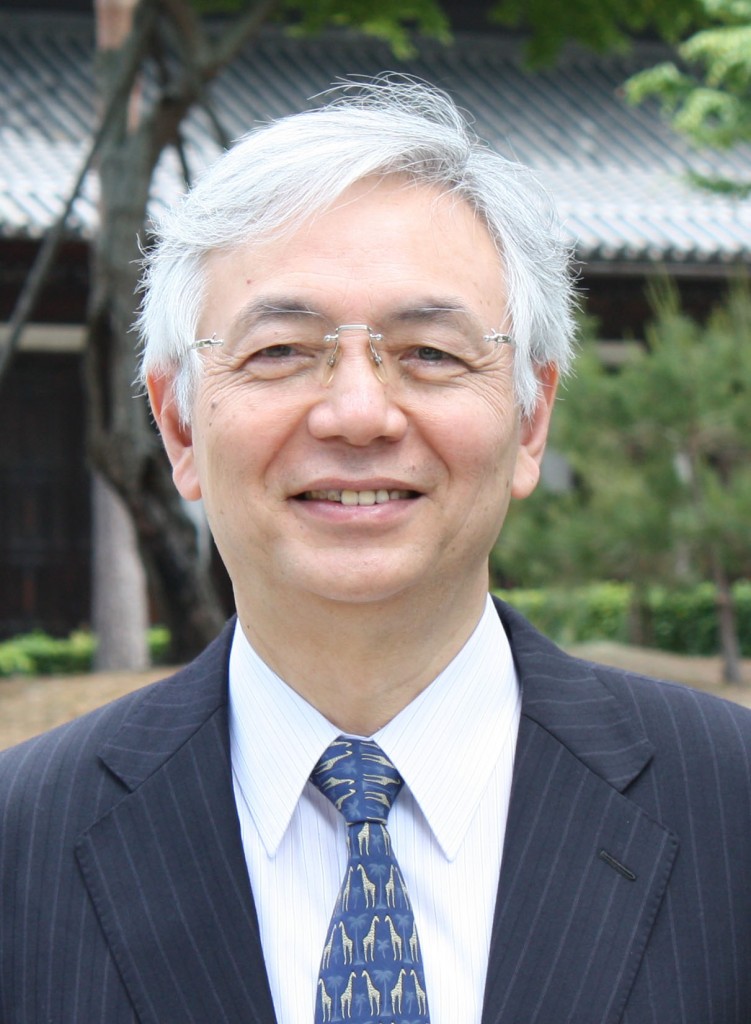 |
|
|
|
|
Katsuhiro KOHARA, Th.D. (Professor of Systematic Theology, School of Theology, Doshisha University/Director of the Center for Study of Conscience) Professor of Systematic Theology, School of Theology, Doshisha University. Director of the Center for Study of Conscience. His field is Christian theology, religious ethics and comparative study of monotheistic religions. He studied in Mainz and Heidelberg, Germany and earned a Th.D. from Doshisha Graduate School of Theology. He has been interested in the relationship between the Abrahamic religions and Japanese/Asian religions, focusing on contemporary issues such as religious conflicts, freedom of religion and dialogue between religion and science. He is the author of Politics of Religion: The Encounter of the Japanese Society and the Monotheistic World (2010), The Dramaturgy of God: Focusing on Nature, Religion, History, and Body as the Stage (2002), “Creation and Apocalyptic Crises in Japan: A Theological Lesson Learned from the Hiroshima, Nagasaki and Fukushima” (Ernst M. Conradie ed., Creation and Salvation, Volume 2: A Companion on Recent Theological Movements, Berlin: LIT Verlag, 2012), etc. |
 |
|
|
|
|
Kazuyuki SHINOHARA, M.D., Ph.D. (Professor, Department of Neurobiology & Behavior, Nagasaki University Graduate School of Biomedical Sciences) I graduated from Nagasaki University School of Medicine in 1984. I worked for National Center Hospital, National Center of Neurology and Psychiatry as residency. Since then, I studied child psychiatry at Tokai University Graduate School of Medicine from 1986 to 1990, and worked for Tokai University Hospital from 1990 to 1993. Afterward, I started to do research as chronobiologist. 1993-1995: Lecturer, Department of Chronobiology, Hokkaido University Graduate School of Medicine, 1995-2001: Assistant Professor, Department of Physiology, Yokohama City University School of Medicine. 2001-2002: Associate professor, Department of Physiology, Dokkyo Medical School, Japan. I’ve been doing human study on non-verbal communication between child and parents and neuronal and genetic basis of family love since I became full professor of Department of Neurobiology and Behavior Nagasaki University Graduate School of Biomedical Sciences. |
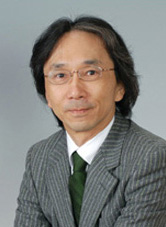 |
|
|
|
|
Motoko MORIMOTO, DVM, PhD (Professor, Miyagi Univerisity School of Food, Agricultural and Environmental Sciences, Department of Farm Management/ a member of Japan Veterinary Medical Association, Committee on Animal Welfare/Vice President of Miyagi Prefecture Animal Welfare Council) Motoko Morimoto received her D.V.M. degree in 1988 at Osaka Prefecture University and PhD degree in 1995 at Osaka University. She has been working on immune responses against parasite infection. She worked in USDA (United States Department of Agriculture), USUHS (Uniformed Services University of the Health Science) and University of Maryland as a postdoctoral fellow from 1999 to 2005. Then she started teaching animal physiology and animal health in Miyagi University. Since 2011, she has continued to support earthquake survivors with her students in Sendai. She realized that working with nature, such as soil and plants are very helpful to care the survivors. |
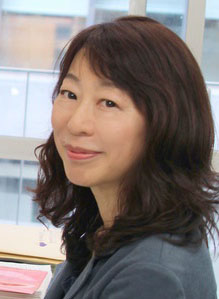 |
|
【Symposium 1】 |
|
|
Mikio SUGIHARA (Chief of Hyogo Prefecture Animal Welfare Center, Awaji Office) Graduated Kitasato University School of Veterinary Medicine in 1981 Worked at public health department, prefectural department, and animal welfare center, in which involved with rabies control and |
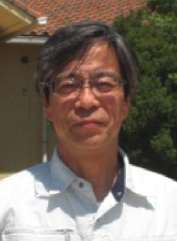 |
|
|
|
| Katsuya TERAI (Section Leader at Animal Welfare Section, Health Division, Department of Health and Welfare, Environmental Health Office, Shizuoka Prefecture)
Employed by a government office in Shizuoka prefecture in 1990. As a veterinarian engaging public health, worked at a public health center and a meat inspection center, and an institute of environmental health and science. Presently employed at an animal welfare section of health division in prefectural government and engaging in the animal welfare and management work and the rabies control work. Based on the Shizuoka Prefecture Animal Welfare and Management Implementation Project (2014), aiming for the realization of “an inclusive society of human and animals” and implementing various measures. |
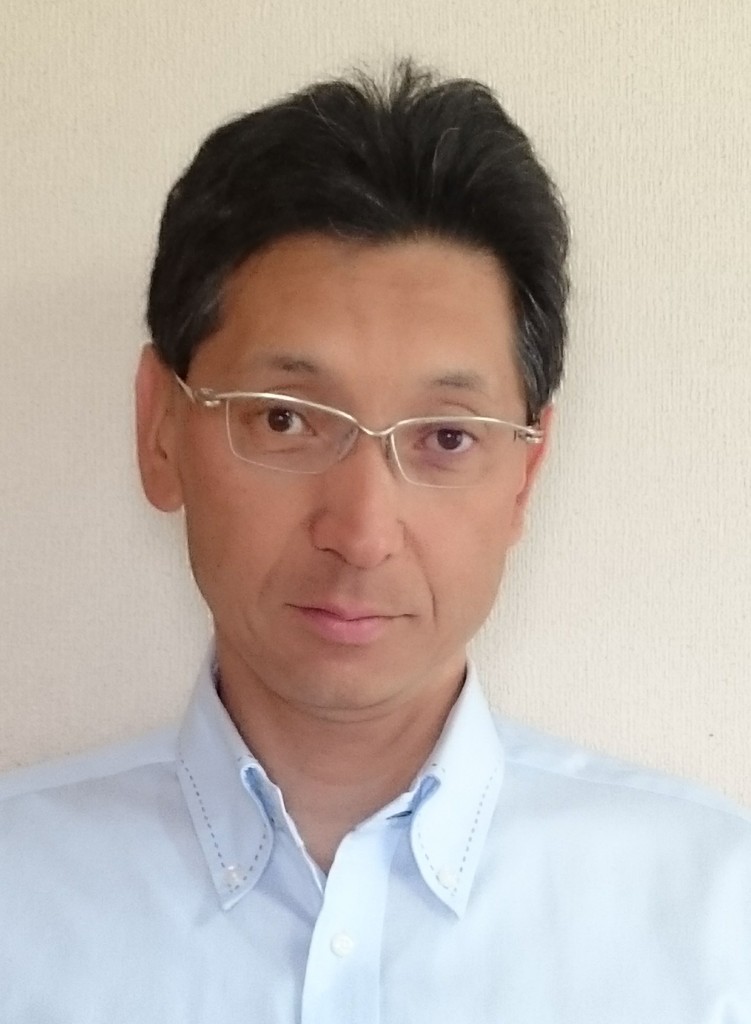 |
|
|
|
|
Jun TOOYAMA (Niigata Prefecture Animal Rights Protection Center, Assistant Counsellor) Veterinarian born in Niigata City. In 1988 he graduated from the Obihiro University of Agriculture and Veterinary Medicine’s graduate course. The same year he joined the Niigata Prefectural Office, and began working as a public health veterinarian. When the Chuetsu earthquake occurred in 2004, he was involved in planning and coordinating the many animal welfare projects as the Animal Care and Sanitation chief in Niigata’s Department of Health and Social Welfare’s Environmental Health Division. He also worked with animal welfare groups to home adult dogs and created a website for cat adoption, and is working to reduce the number of animals euthanized. Since the opening of the Niigata Animal Rights Protection Center in 2012, he has worked not only on adoption projects, but also leads classes on taking care of cats and dogs. |
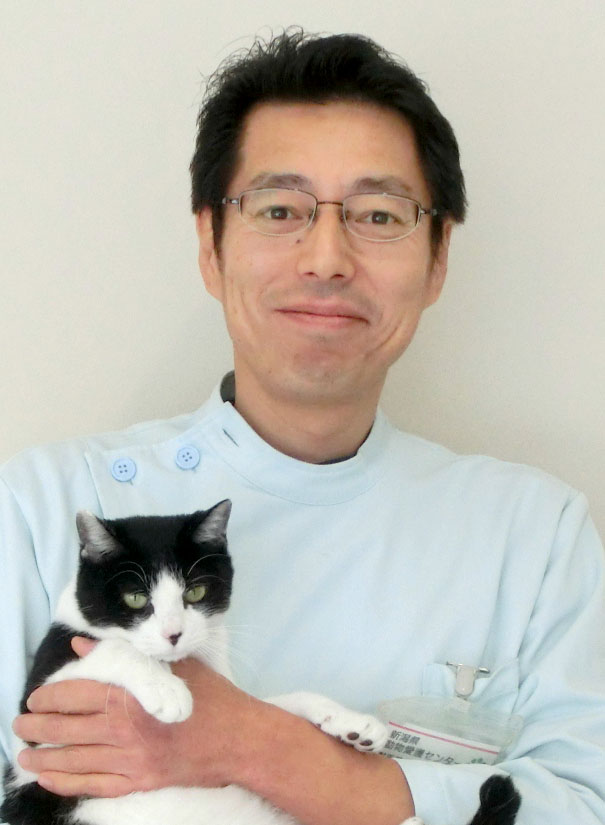 |
|
|
|
|
Kazuyoshi OHNISHI (Dr. of Engineering, Associate Professor; Architecture and Urban Safety Planning Laboratory, Graduate School of Engineering, Department of Architecture, Kobe University)
Disaster Mitigation Management: Disaster science requires collaboration work both finding-discovery and creative-imagination based on interdisciplinary research such as natural, human and social science. This involves establishment of build environment through urban planning and architectural planning design methodology in the field of social safety science, risk management and disaster mitigation. Development of management program methodology to maintain regional safety environment (we call “Machidukuri” work) will be discussed making good use of various community power or human resources for disaster mitigation. Seeking of effective planning and design tools should be also discussed. |
 |
|
【Symposium 2】 |
|
|
Hiroshi YOSHIDA (Honary director of Himeno hospital/Director of Organization for zoonosis) Infectious desease Hepatology |
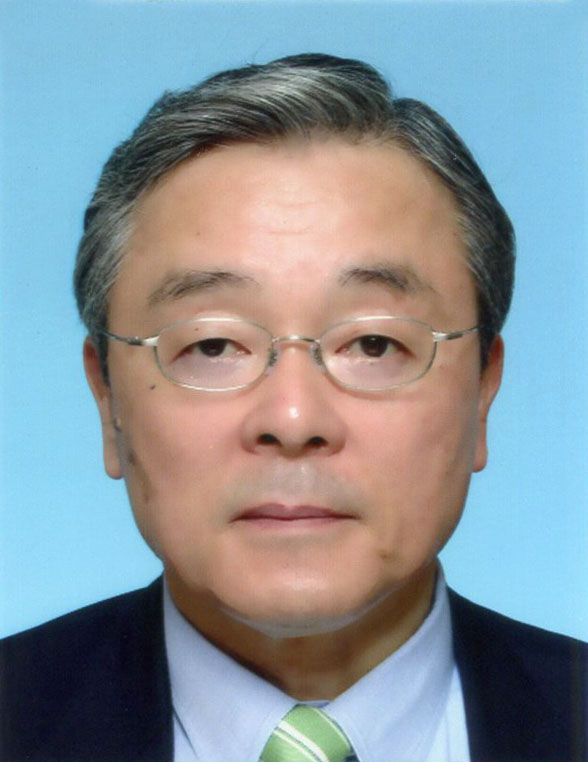 |
|
|
|
|
Yasuyuki KATO, MD, MPH (Chief of Division of Preparedness and Emerging Infections, Disease Control and Prevention Centre, National Centre for Global Health and Medicine) Dr Kato is Chief of Division of Preparedness and Emerging Infections, Disease Control and Prevention Centre, National Centre for Global Health and Medicine (NCGM) in Tokyo. His background is in medicine and infectious disease. He graduated from Chiba University School of Medicine in 1995. After completing clinical training at Tokyo Metropolitan Komagome Hospital, he began working at Tokyo Metropolitan Bokutoh Hospital. He has worked with NCGM since 2005. During his time with NCGM, Dr Kato accumulated experience in avian influenza (H5N1) and tropical infectious diseases in Vietnam and Crimean-Congo haemorrhagic fever in Turkey. During that time, he also obtained his MPH from Johns Hopkins University. Since 2011, he has been the principal investigator of the research group on hospital preparedness for highly infectious diseases (Grant from Ministry of Health, Labour, and Welfare). In that capacity, he has been involved in supporting medical institutions designated for highly infectious diseases across Japan. In May and August 2014, he was sent to Liberia to support the outbreak response for Ebola virus disease as a WHO consultant. |
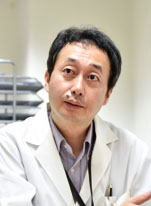 |
|
|
|
|
Tomohiko TAKASAKI, MD, PhD (Chief, Vector-borne Virus Laboratory, National Institute of Infectious Diseases) 1982: Graduated from Osaka Medical College |
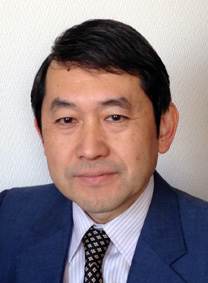 |
|
|
|
| Ken MAEDA, Ph.D., D.V.M. (Professor, Joint Faculty of Veterinary Medicine, Yamaguchi University)
1996 Ph.D. The University of Tokyo
|
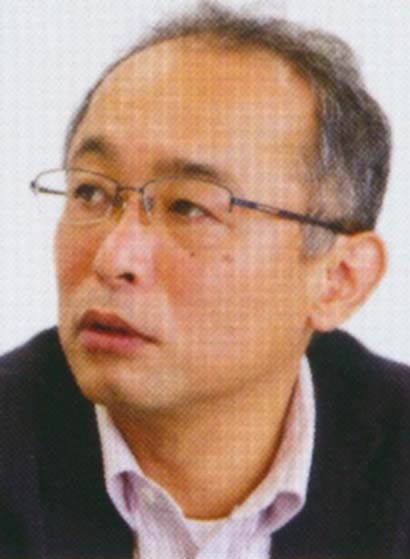 |
|
|
|
|
Shoji MIYAGAWA, DVM.MS. (Director, Infectious Diseases Information Surveillance Division, Health Bureau, the Ministry of Health, Labour and Welfare, JAPAN) Dr. Shoji MIYAGAWA was graduated from the Veterinary School of the Osaka Prefecture University and joined the Ministry of Health and Welfare in 1987. He was appointed Technical Officer, the Food Safety Division, World Health Organization (WHO), Geneva in 1994 and Counselor, the Permanent Mission of Japan to the United Nations, New York in 2008. He has been working mainly in the Ministry of Health, Labour and Welfare, Japan on regulatory aspects on food safety and public health. He is the Director, Infectious Diseases Information Surveillance Office since April 2015. |
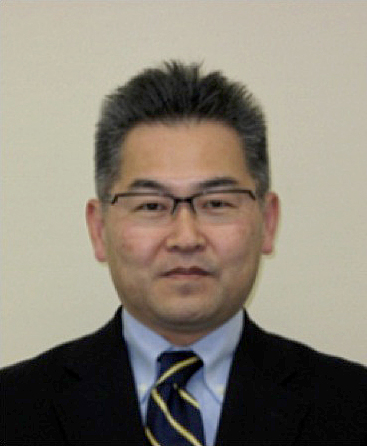 |
|
【Symposium 3】 |
|
|
Kenji OYAMA (Professor, Kobe University) I graduated from the Department of Agriculture, Miyazaki University in 1992, and then proceeded to the advanced courses of Kobe University. I started my research and education career at Food Resources Education and Research Center (formerly Experimental Farm) of Kobe University in 1999 and have been in the position since then. The field of interest is |
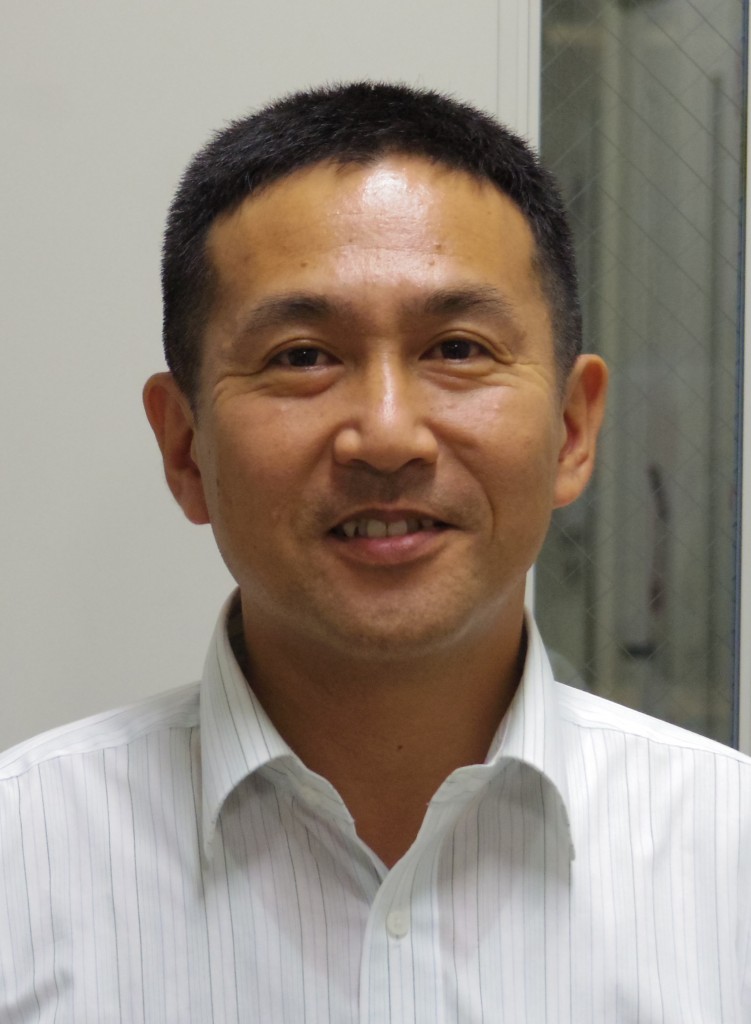 |
|
|
|
|
Shiro INUKAI (General Manager of Livestock Improvement Division, National Livestock Breeding Center)
Bone in 1966 at Yamanashi Prefecture, raised in Fujiyoshida City National Livestock Breeding Center |
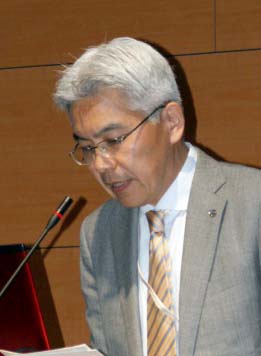 |
|
|
|
|
Tsutomu YOSHIZAWA (Director General, National Livestock Breeding Center Kumamoto Station (Incorporated Administrative Agency)) After graduating from university, engaged in practical use of embryo transfer technology,development and implementation of animal genetic evaluation system ,promotion of joint reserch and dissemination of the outcome of the research, and so on. Incumbent from April 2013,main jobs are breeding and improvement and increase of Japanese red cattle,production of seeds of grasses and rice plants for forage and making chances of experience of job at farm for children. |
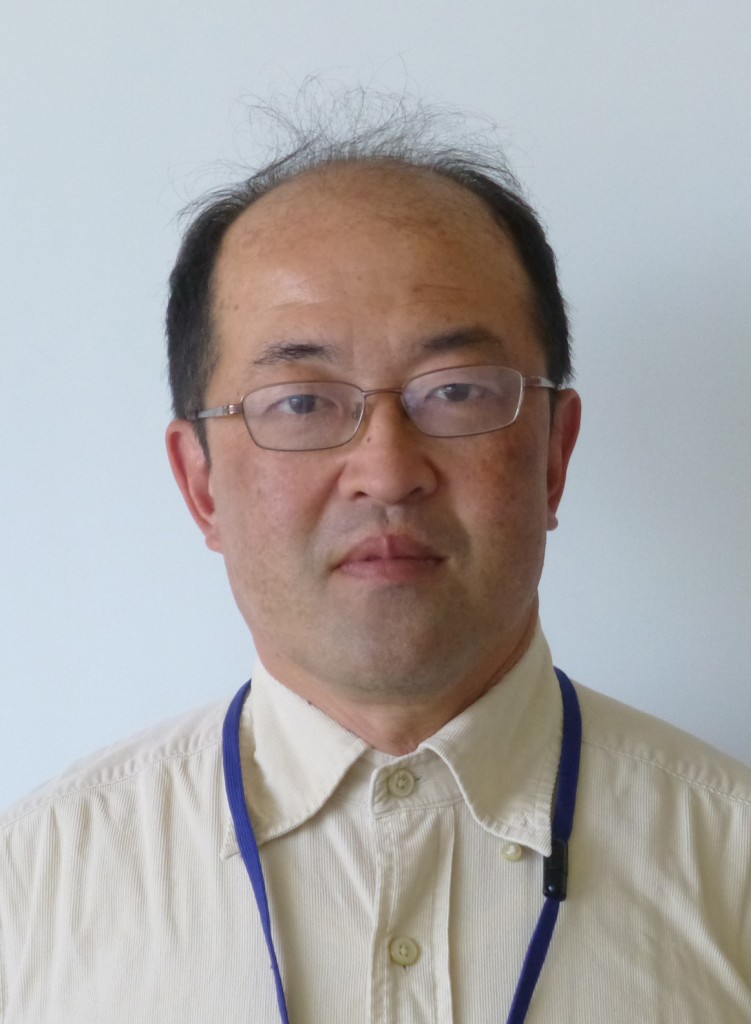 |
|
|
|
|
Tsutomu HASEGAWA (Chief General Manager, Japan Feed Manufacturers Association)
From 1978 Tsutomu Hasegawa engaged himself in supporting livestock farmers, stabilizing supply-demand balance and wholesale prices of livestock products, studying overseas livestock industries and so on at Agriculture and Livestock Industries Corporation (ALIC), the former Livestock Industry Promotion Corporation (LIPC). In 2012 he started to work with Japan Feed Manufactures Association. Since then, he has urged several enterprises to supply feed stably to livestock farms. The most important issue of the Japan’s livestock industry, which produced 32% of total agricultural output in 2013, is that almost 100% of raw materials for formula and mixed feed are imported. In order to supply consumers stably with quality livestock products, we has been actively trying to use feed rice since December 2013 and to raise the self-sufficiency rate and feed supply capacity. |
 |
|
|
|
|
Yoshitaka HONDA (Hyogo Prefectural government, Agricultural Environment Department, Agriculture, Forestry and Fisheries Bureau, Livestock Division hygiene feed group leader) Address: Himeji City I engaged Livestock administration mainly. Currently,I handle measures of Highly-pathogenic avian influenza and Foot-and-mouth disease, expanded use of domestic production feed and environmental measures related to domestic animals. |
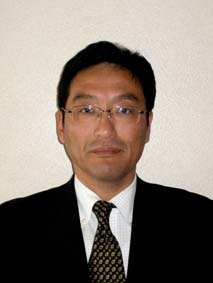 |
|
【Symposium 4】 |
|
|
Tadahisa KAKEGAMI (Director, Kanto-Shinetsu Regional Bureau of Health and Welfare) Since April 2015. |
|
|
|
|
|
Ryoji NISHIZAWA (Secretary-General of the Japan Association for Promoting Harmonization Between People and Pets, and President of Peppy Co..) Since 1993 he has been involved in the publishing of mail-order information and a magazine produced the “Doctor’s Advice Peppy”, for pet owners. He is responsible for interviewing and writing about animal hospitals and the key individuals working in veterinary medicine, self-governing bodies and pet related companies. He also edits the magazine. He has served as Secretary-General for the Japan Association for Promoting Harmonization Between People and Pets since its foundation in 2007. Born in Kobe, now is the Takarazuka city. |
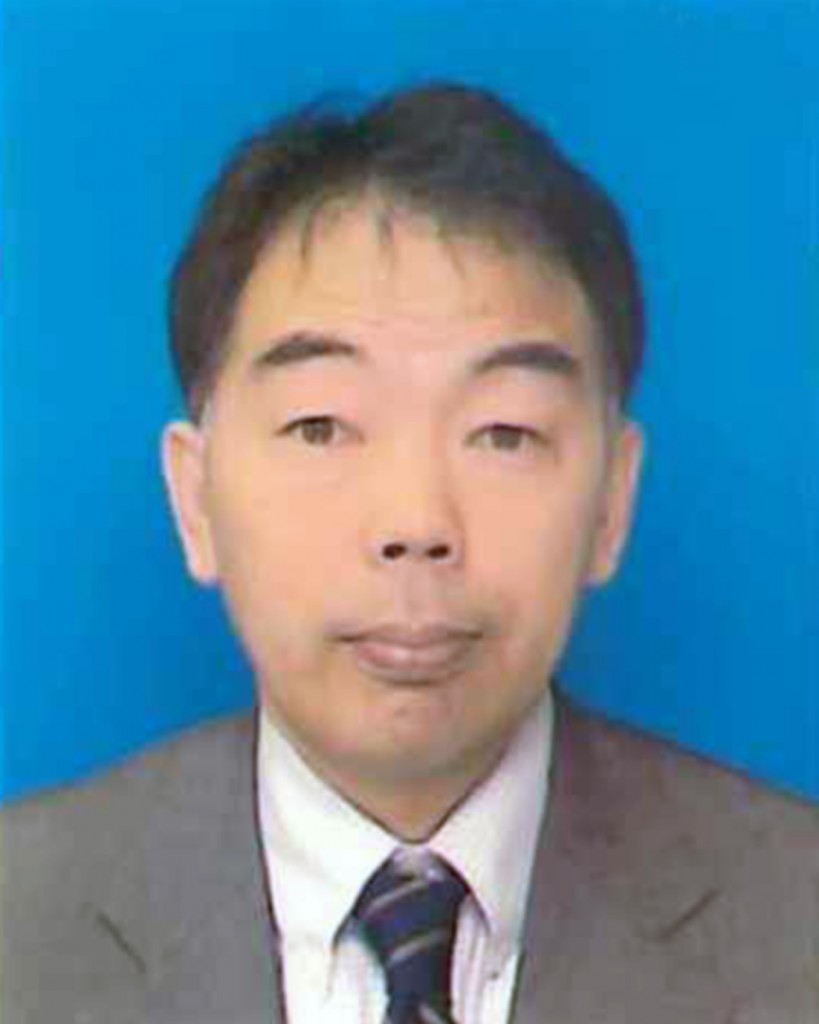 |
|
|
|
|
Masaru UESUGI (Manager, Section of Kobe Government Sector & Financial, Institutions Dept./Kansai Government Sector & Financial Institutions Dept. Tokio Marine & Nichido Fire Insurance Co., Ltd.) Employed at Tokyo Marine & Fire Insurance Co., Ltd. (Presently Tokyo Marine & Nichido Fire Insurance Co., Ltd.) from 1998. Currently engaging in casualty insurance and risk consulting work at a local government, some associations, and a financial agency. |
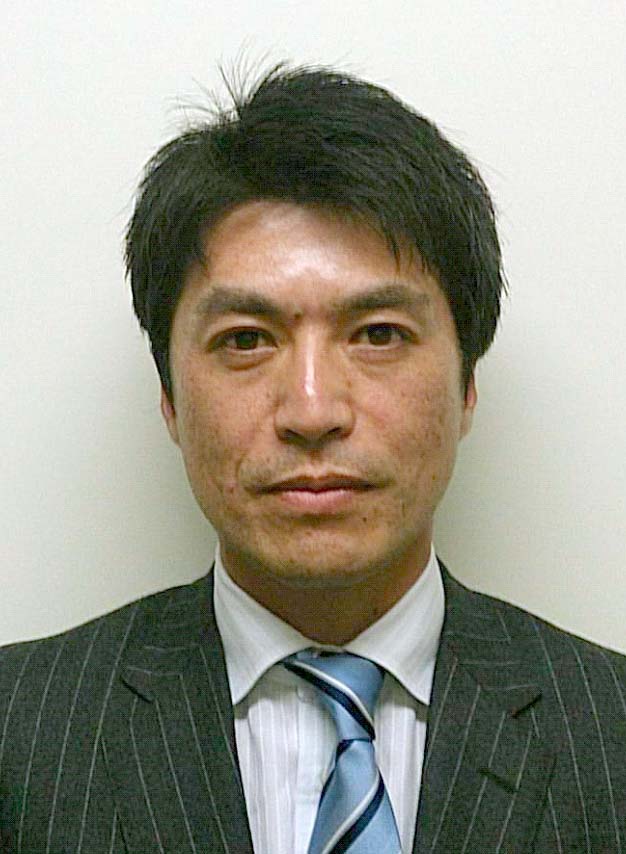 |
|
|
|
|
Ichiro MATSUHARA (Professor, Dept. of Sociology, Kansai University) As an academician of social policy, I am engaged with policy making of both national government and local authorities, ranging from elderly care to the programs for the disabled. I have also been committed to the vast reconstruction policy after the Great Hanshin-Awaji Earthquake including housing and health programs. One of my professional objects is to build a caring society with the combination of social science and the art of social work. |
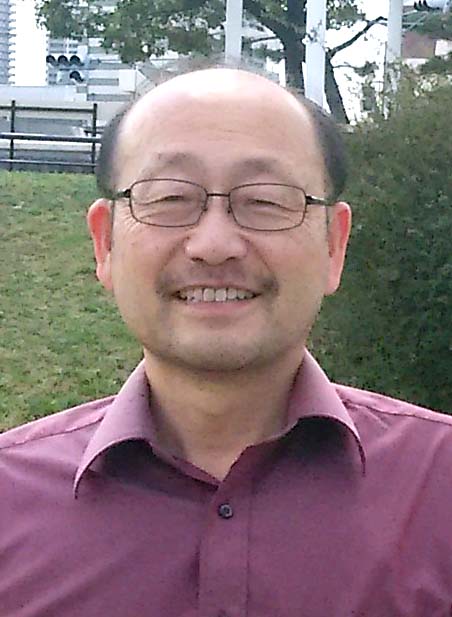 |
|
【Symposium 5】 |
|
|
Professor, Nippon Veterinary and Life Science University / Chair, Japanese Association of Veterinary Disaster Medicine Major Careers 1996 Assistant Professor, School of Veterinary Medicine, Nippon Veterinary and Life Science University 2002 Associate Professor, School of Veterinary Medicine, Nippon Veterinary and Life Science University 2012 Professor, School of Veterinary Medicine, Nippon Veterinary and Life Science University |
 |
|
|
|
|
Dr. Madigan is a professor of medicine and epidemiology at UC Davis School of Veterinary Medicine and the director of the International Animal Welfare Training Institute. He is board certified in internal medicine, has authored over 250 peer reviewed scientific publications, and is the editor of two textbooks on the care of foals. He is a member of the California Animal Emergency Response Steering Committee and the American Association of Equine Practitioners Welfare Committee. Dr Madigan was instrumental in developing the UC Davis Anderson sling and the UC Davis large animal lift. Dr Madigan founded the UC Davis Veterinary Emergency Response Team (VERT). VERT has gained national attention as a Medical Reserve Corp under the Office of the Surgeon General. Dr Madigan has personally responded to floods, fires and other disasters in California and nationally. He was the principle investigator selected for the 2010-2012 Animals in Disasters grant from CAL-EMA to train emergency responders in safe and humane animal related rescue, sheltering, and preparedness. |
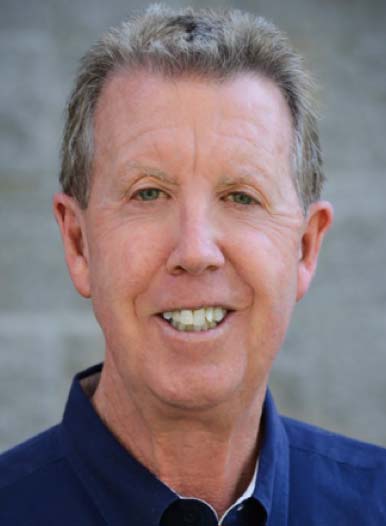 |
|
|
|
|
Dr. Tanaka earned her DVM at Nippon Veterinary and Life Science University. Dr. Tanaka pursued Master of Veterinary Preventive Medicine at University of California, Davis, where Dr. Tanaka conducted research on feline upper respiratory disease at animal shelter. Currently, Dr. Tanaka is conducting several epidemiological researches including animal relief work in affected area by the Great East Japan Earthquake and infectious disease management at public shelters in Japan at University of California, Davis, Graduate Group of Epidemiology. Dr. Tanaka is not only a part-time faculty at Nippon Veterinary and Life Science University, but also lectures at various seminars on shelter medicine and disaster medicine, perform consultation and lectures at public shelters in Japan. |
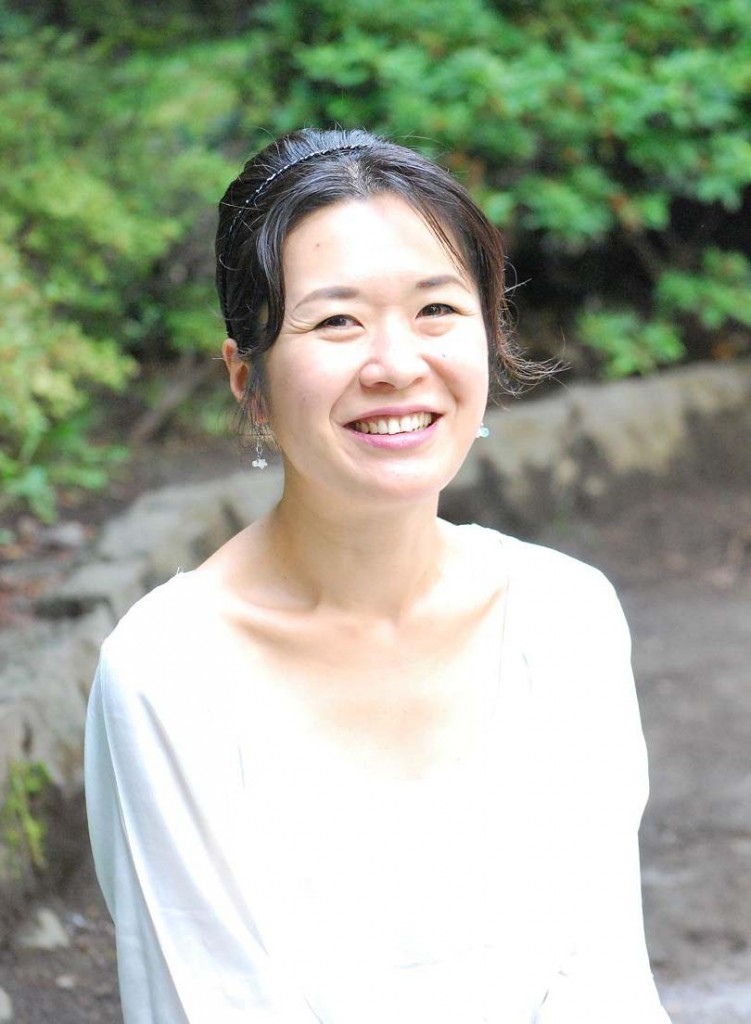 |
|
【Oral Session1】 |
|
| Saharuetai Jeamsripong, D.V.M, MPVM, PhD
Western Center for Food Safety, University of California, Davis, Davis, CA
Dr. Saharuetai Jeamsripong is a graduate student in Epidemiology in the University of California-Davis. She received her Doctoral of Veterinary Medicine (DVM) degree from Kasetsart University, Bangkok, Thailand and Master degree in Preventive Veterinary Medicine (MPVM) and PhD in epidemiology from the UC Davis. After more than 3 year experiences as a creative young scientist in the Western Center for Food Safety, her greatest strengths are creativity, drive, and leadership. Her enthusiastic research focuses on microbial food safety of leafy green produce and the role of animal intrusions in contamination of lettuce with zoonotic enteric pathogen surrogates under field conditions, and zoonotic foodborne pathogen persistence in untreated animal manure used as a soil amendment in conventional and organic farms, and appropriate time intervals between application and harvest of fresh produce. |
 |
|
|
|
| Anyarat Thiptara
Department of Population Health and Reproduction, School of Veterinary Medicine, University of California, Davis, CA, USA. / Epidemiology Section, Veterinary Research and Development Center (Southern Region), Thung Song, Nakhon Si Thammarat, Thailand.
Dr. Thiptara is a veterinary epidemiologist at Veterinary Research and Development Center (southern region), Thailand. He earned his D.V.M. degree, 2nd class honors from Chulalongkorn University, Thailand and completed his M.P.V.M. degree from University of California Davis where he has been pursuing a Ph.D. study in Epidemiology Graduate Group. His research interest includes epidemiology of infectious diseases in livestock animals, and zoonoses and emerging & re-emerging diseases in a tropical country. |
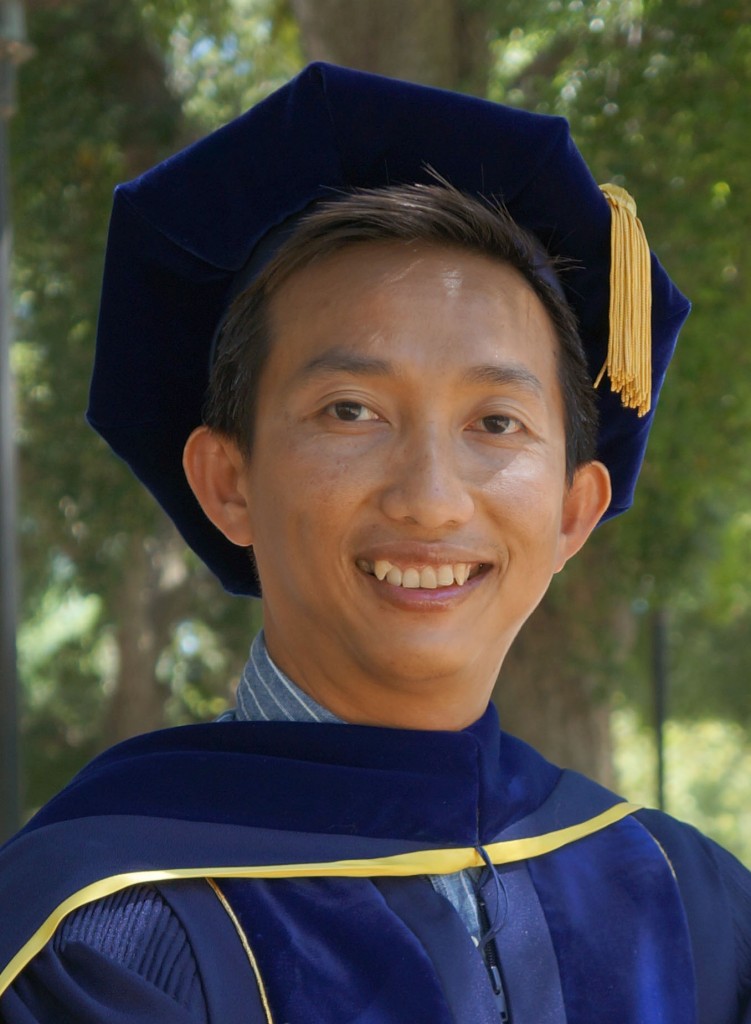 |
|
|
|
|
Eastern Asia University, Thailand / SIAM Health Care, Thailand-Bangladesh / SIAM Health Foundation, Thailand-Bangladesh |
|
|
【Oral Session2】 |
|
|
Kazutoshi TAKAMI (Senior Curator, Osaka Municipal Tennoji Zoological Gardens/Vice president, Japanese Society of Zoo and Wildlife Medicine/Head of global conservation affairs division, Japanese Association of Zoos and Aquariums) Recently there are not enough opportunities for us to see the animals that we’ve been used to seeing around us, such as ants, crucians, swallows etc. At the same time, it seems that changes in our sense of values are going on. To experience the presence of a wide variety of animals become increasingly important in the future. I got a position as a zoo veterinarian, after I graduated from university. I am working for Osaka Municipal Tennoji Zoological Gardens from 1995. Currently serving as a member of the Conservation and Sustainability Committee of World Association of Zoos and Aquariums, and board member of Asian Society of Conservation Medicine, I am intent on improving the captive population management program and promoting the conservation of crane species. |
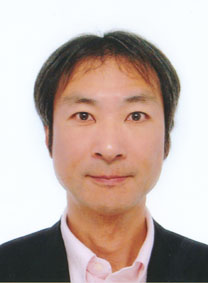 |
|
|
|
|
Dean & Professor, Graduate School of Regional Resource Management, University of Hyogo / Research Director General, Hyogo Park of the Oriental White Stork
Animal Ecologist, Dr of Science (Kyoto University), Research field: Japanese terrestrial area including forests, rivers, wetland, paddy fields, dam-lakes and urban, mainly on birds as |
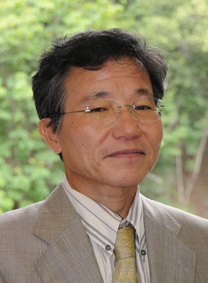 |
|
|
|
|
Director of Nasu Animal Kingdom / Vice Chairman of Conservation Committee, Japanese Association of Zoos and Aquariums |
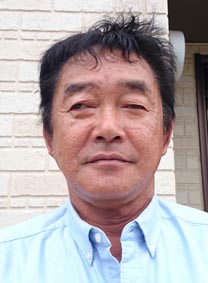 |
|
|
|
|
Representative, PROJECT TOKKARI
Graduation from veterinary Medicine, Faculty of Animal Science, Obihiro University of Agriculture and Veterinary Medicine in 2003. Completion Graduate School, Division of Veterinary Medicine, Hokkaido University in 2007. Researcher of Animal research center, Hokkaido Research Organization in 2007-2013. He works as company employee at Tokushima currently. He started research of Kuril harbor seal when he was a student of Obihiro University of Agriculture and Veterinary Medicine. The theme of the doctoral dissertation was ecology and epidemiology of Kuril harbor seal. He has conducted research and information about the seal voluntarily after university. |
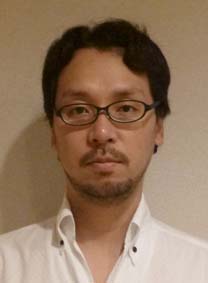 |
|
【Oral Session3】 |
|
| Masahiro AMAGASE
Nara Women’s University, Associate professor of psychology
Masahiro Amagase studies environmental cognition and behaviors, and the psychological basis of ethics as our way of living. He chairs the meeting for promoting moral education at Nara from 2012 to 2014, and the conference for the study of “Inochi” education at Nara Prefecture Uda Animal Park since 2013. |
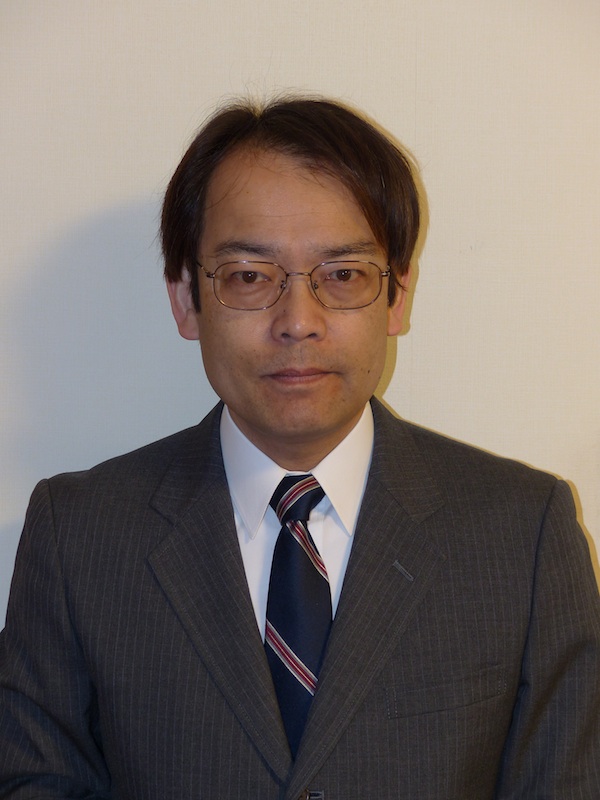 |
|
|
|
|
Clinical Professor at University of Denver Graduate School of Social Work
・Founder and Executive Director of Institute for Human-Animal Connection at University of Denver Graduate School of Social Work ・Founder and Coordinator of Animal-Assisted Social Work certificate program for Master of Social Work students at University of Denver Graduate School of Social Work ・Founder and Director of Animals and Human Health Professional Development Certificate Program ・Specialty Master of Science in Social Work focusing on bio-affiliative connection between people and animals ・Research, scholarship, presentation, teaching, consultation, networking and clinical practice focusing on at-risk populations, social justice, strength and resiliency models of human-animal interaction, conservation, bio-ethics, human ecology, international and environmental social work |
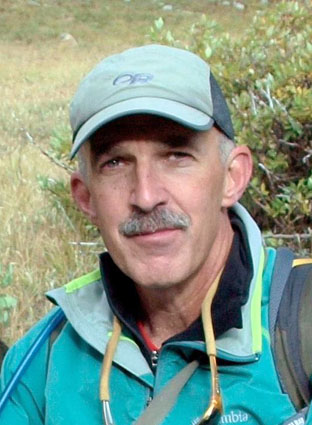 |
|
|
|
|
Education Program Manager, Green Chimneys Farm and Wildlife Center Sam and Myra Ross Institute at Green Chimneys
Miyako Kinoshita is the current Farm Education Program Manager at the Green Chimneys Farm and Wildlife Center and Sam and Myra Ross Institute at Green Chimneys. She serves as the key facilitator for over 200 children with psycho social disabilities currently in residence and day school and facilitates and co-supervises a wide range of animal and plant based nature assisted programs. She is the liaison to the social work department, child care, the teaching staff and advocates for the positive impacts of the farm environment and connects children and nature. Miyako is the former president of the Equine Facilitated Mental Health Association (EFMHA) and is a current board member of the Professional Association of Therapeutic Horsemanship International (PATH) serving as a secretary. As a noted speaker on the incorporation of nature based programs in a residential treatment and school setting, Miyako has lectured extensively in the United States and internationally at various conferences. Her lecture have taken her to State University of New York at New Paltz, University of Denver, Azabu university, Teikyo university of Science and Technology, among others and appeared in multiple media productions in the United States and in Japan. |
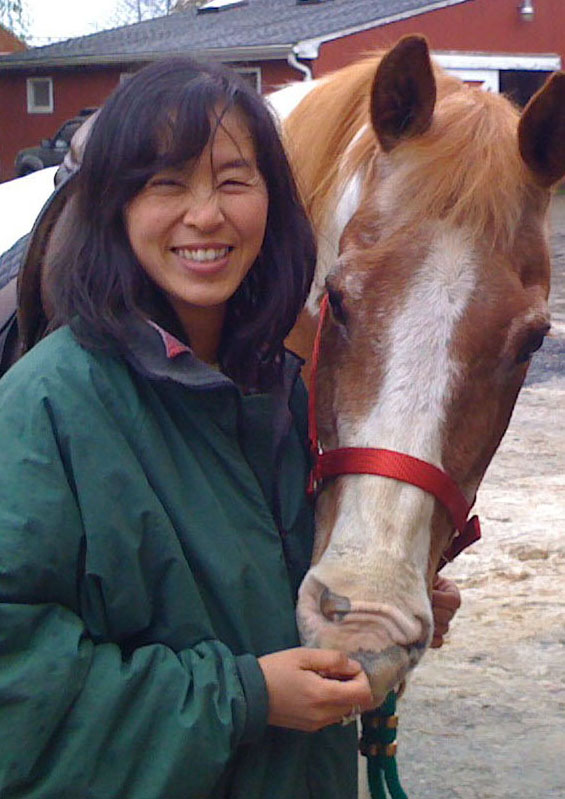 |
|
|
|
|
Founder & Executive Director of ACTAsia
Pei F. Su founded ACTAsia in 2006 and is Executive director. She has been active in animal welfare and humane education for twenty years. She has led numerous campaigns in Asian on various animal issues, and has extensive knowledge of international animal welfare project management. For five years Pei worked World Animal Protection (WAP), where she was Asian Project Mange |
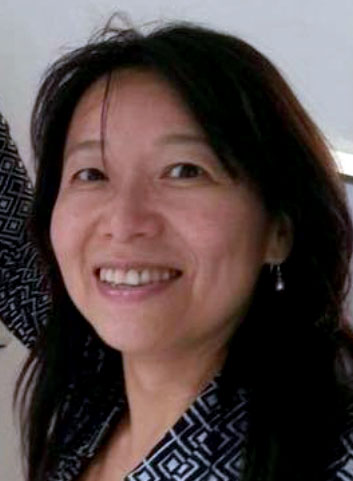 |
|
|
|
| Md. Golam Abbas
Department of Molecular Neuroscience and Integrative Physiology, Kanazawa University, Kanazawa, Japan / Infectious Diseases Hospital, Dhaka, Bangladesh
Md. Golam Abbas is working as a physician under the Government of the Peoples Republic of Bangladesh. Now he is studying PhD at Kanazawa University, Japan. As everyone knows that Bangladesh is a developing country with lots of essential health care limitations including persistence of many communicable diseases, most of which can be easily eliminated through educating poor and illiterate people with existing facilities. When he was a medical school student, he started to serve in public health sector. He participated many motivational programs for primary health care (such as hand wash before eat and after toilet, dental care, personal hygiene, diarrhea etc.). After his graduation, he joined the Government service and continued to contribute to the public health sector. Now he has 20 years of experience in the field of public health, infectious and communicable diseases (HIV/AIDS, Diarrhea, Zoonotic diseases especially Rabies etc.), environmental health, women’s health etc. He is an enthusiastic and dynamic person having patience to work in developing country like Bangladesh with above mentioned issues. He has participated many scientific meetings in and around the world with his research findings. Now he is working on Rabies, its prevention and elimination from Bangladesh as well as to ensure animal rights and wellbeing. |
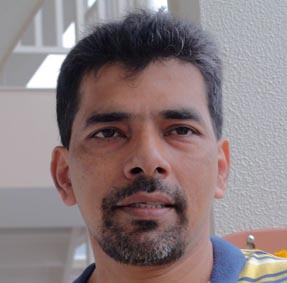 |
|
|
|
|
Research Center for Child Mental Development, Kanazawa University, Kanazawa, Japan
Naila Al Mahmuda received her PhD degree in 2013 at Kanazawa University, Japan and prior to this she obtained MBA degree in 2007 at BRAC University, Bangladesh. She has mathematical background at her undergraduate degree. She is working for mental health development of children with autism spectrum disorders (ASDs). Children with ASD may have a significant relationship with the attachment of pets for certain behavioral phenotype. Beside this, during her study she was become interested in public health in a developing economy where health care services are needed but are delayed or not obtained due to financial instability and lake of awareness, specially in the poor community of developing countries, such as Bangladesh. In view of this she started her career in public health sector and starts to work on different public health issues, such as TB control, epidemiology of rabies etc. for at-risk population and sustainable environmental issues for the vulnerable groups. |
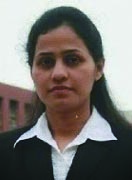 |
|
|
|
| Akiko OMORI
Elementary School Teacher / Chief Staff at Nara Prefecture Uda Animal Park Promotion Office
Akiko OMORI completed the department of teacher training and school education course at Nara University of Education in 2006. From 2007, She worked at Nara City Hayama Elementary School. She serves in Nara Prefecture Uda Animal Park Promotion Office since 2013. |
 |
|
|
|
|
Doctor of Human Science and Environment from University of Hyogo, School of Human Science and Environment
She established “coexistence environment of humans and pets laboratory”. She is studying the theory of pet environment and presently teaching the theory at college and technical school and giving a presentation in many parts of the country. She wrote “Growing the Mental Attitude of Old Dogs (INU-NO-OIJITAKU)” and more. Also, she trains dogs and the owners at Kobe city Animal Management Center as a member of Promotion Committee of Kobe City Animal Well-being. In addition, she has a class of “how to live with a pet”, sponsored by autonomous body. She has built a better relationship between pets and 4500 owners as a dog training instructor of JAHA (Japanese Veterinarian Welfare Society). |
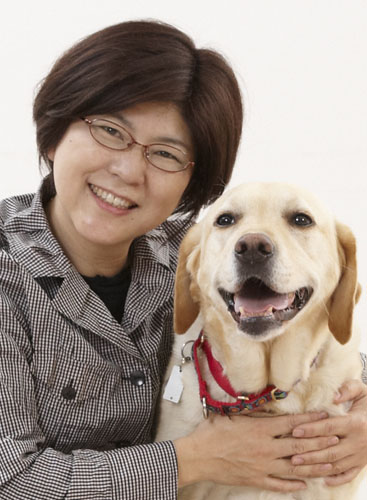 |
|
【Oral Session4】 |
|
| Takashi KOSEKI
WSAWA Asian Regional Ambassador
Born in Tokyo in 1960. Takashi Koseki completed master degree of veterinary science at Obihiro University of Agriculture & Veterinary Medicine in 1987. Takashi got training at Australian veterinary specialist hospitals in 1985 and 1996. Takashi completed PhD degree at Asahikawa Medical University in 2006. WSAVA, PR& Communication Committee member SJCAP honorary secretary, WSAVA representative WSAVA, Asian regional ambassador I’d like to contribute to make both Human and Companion Animal as a family member to live together with their healthy, pleasant and long life. I have been making efforts to establish a global veterinary community network and provide animal friendly veterinary medicine to our society through pain management, one health and continuing education. I hope to support challenged persons by guide dogs and companion animal partnership program (CAPP). |
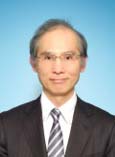 |
|
|
|
| Shusuke SATO
Professor, Teikyo University of Science; Society for Animal Refugee & Environment post Nuclear Disaster (AEN) / Research Team for Special Mission in Fukushima, Japanese Society for Applied Animal Behaviour (JSAAB)
Born: 1949 in Sendai, Miyagi, Japan Education Employment |
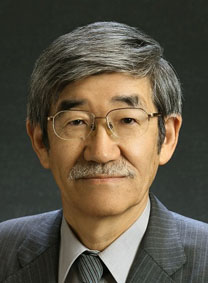 |

